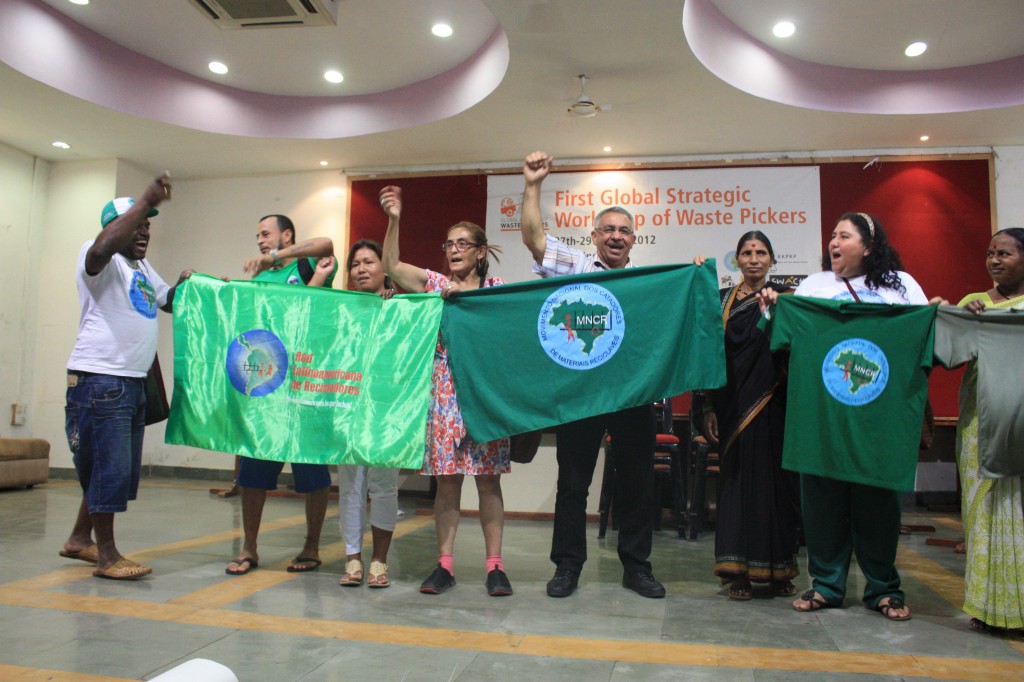by deia
April 29, 2012
Pune, India – April 28
Today was the second day of the First Global Workshop of Waste Pickers, hosted by the SWaCH cooperative and the KKPKP union on behalf of the Global Alliance of Waste Pickers. Waste picker organizations from Africa, Latin America and Asia came together with allies to discuss different models of inclusion in municipal solid waste management systems and the threats they are facing as waste pickers.
Miroslav Mitrovic, the only European waste picker at the workshop, was one of the presenters. After his presentation, with the help of a translator, he eagerly requested that the Latin American waste pickers give him t-shirts, flags, banners – any paraphernalia representing their hard-won rights as waste pickers.
When he returns to Kacak, Serbia, he’s set to appear on television to talk about the newly formed cooperative that he’s helped start. It’s the first waste pickers’ cooperative in Serbia. The municipal and national governments are supporting the process – providing equipment, space, and help with management. In Eastern Europe, most waste pickers are Roma and face discrimination.
So when Mitrovic requested t-shirts, it wasn’t just to take them back to Serbia as souvenirs. It was to show his community that waste pickers in other parts of the world are proud of what they do, and aren’t afraid to show it.
In Serbia, “there’s a fear of losing welfare if they start to work formally,” said Jelena Nesic, with the Democratic Transition Initiative, an NGO working with waste pickers to form the cooperative. Coming to Pune, India, where waste pickers with SWaCH are receiving municipal support and improving their working conditions, has been an important experience for Mitrovic and other waste pickers gathered here for the global workshop.
“They exist as a social problem but not as a livelihood activity,” said Anne Scheinberg, a researcher with WASTE. “In a country that denies that you exist, you sometimes don’t have the idea that there’s solidarity elsewhere in the world.”
That solidarity was palpable today, as waste pickers from 26 countries across Latin America, Asia, and Africa shared the way they fit into the solid waste management systems of their towns and cities.
“Becoming organized is a difficult process. In every country in the world, waste pickers have been invisible,” said Nohra Padilla, a waste picker and organizer with the Waste Pickers’ Association of Bogotá (ARB), Colombia. “This situation only changes when we begin to organize.”
The global workshop continues until April 30 as discussions on strategic issues about the integration of waste pickers in solid waste management progresses. Waste pickers and organizers will be available for interviews.
Contact Laxmi Narayan, Alliance of Indian Waste Pickers
9422318891
Deia de Brito, Communications, the Global Alliance of Waste Pickers
976540566
Visit www.globalrec.org for more information
Tweet


